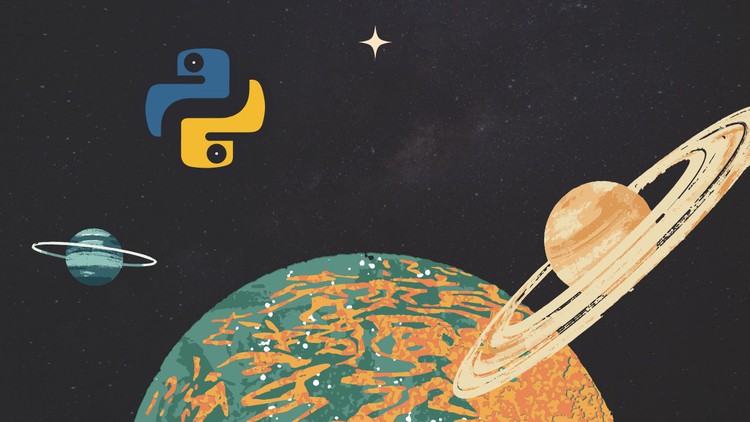
Free Download Python for Space Applications Git FastAPI Machine Learning
Published 3/2024
Created by Spartificial Innovations
MP4 | Video: h264, 1280x720 | Audio: AAC, 44.1 KHz, 2 Ch
Genre: eLearning | Language: English | Duration: 119 Lectures ( 15h 50m ) | Size: 8.13 GB
Unleash Python's Potential in Space Exploration
What you'll learn:
Master Python fundamentals, including data types, control flow, and functions, to build a strong programming foundation for space applications.
Utilize Git for version control and collaboration, enabling efficient management of code repositories for space projects.
Harness essential Python packages like NumPy and Matplotlib for data manipulation, visualization, and analysis crucial for space exploration.
Develop proficiency in simulating celestial mechanics, including planetary orbits and gravitational interactions, using numerical methods.
Gain hands-on experience in deploying Machine Learning models as APIs using FastAPI, integration into real-world space systems for predictive analysis
Requirements:
No Programming Knowledge or Experience Required
Description:
Welcome to "Python for Space Application: Git, FastAPI, Machine Learning" - your gateway to mastering Python for space exploration and beyond! In this comprehensive course, we will delve into the fascinating world of Python programming, equipped with essential tools like Git, FastAPI, and Machine Learning algorithms tailored specifically for space applications.What You'll Learn:Installation and Setup: Get started by setting up your Python environment, including installations of essential tools like VS Code editor and Git for version control.Master the Basics of Python: Dive deep into Python fundamentals, covering topics such as variables, data types, control flow, functions, and more, while utilizing platforms like Google Colab for practical exercises.Build a Rocket using Object-Oriented Programming: Explore the principles of Object-Oriented Programming (OOP) as you construct a simulated rocket, learning to refine its functionalities and upload your progress to GitHub for collaboration.Explore Essential Python Packages: Discover key Python libraries like NumPy and Matplotlib, harnessing their power to manipulate data, create visualizations, and gain insights crucial for space exploration.Simulating Celestial Mechanics: Learn how to simulate the Earth's orbit around the Sun using numerical methods like Euler and Runge-Kutta 4, and extend your simulations to include Mars' orbit, gaining valuable insights into celestial mechanics.Build a Solar System Simulator: Embark on a project to develop a sophisticated solar system simulator using Pygame, incorporating gravitational force calculations and real-time visualization of celestial bodies.Solving Kepler's Equation: Dive into orbital mechanics by tackling Kepler's Equation, employing advanced numerical methods like Newton-Raphson to solve orbital anomalies and calculate satellite trajectories.Introduction to Machine Learning: Enter the realm of Machine Learning, understanding its applications in space exploration, and mastering concepts like linear regression through hands-on coding exercises.Deploy ML model as API using FastAPI: Wrap up your journey by deploying your Machine Learning model as an API using FastAPI, enabling seamless integration into real-world space applications.Why This Course Matters: With the rapid advancements in space technology, Python has become an indispensable tool for space engineers, scientists, and enthusiasts alike. By mastering Python alongside essential tools and techniques tailored for space applications, you'll be equipped to contribute to groundbreaking discoveries and innovations in the realm of space exploration.
Who this course is for:
Astronomy students and hobbyists looking to apply Python in their studies or projects.
Beginner Python students looking to develop understanding of core concepts with a new perspective
Homepage
Recommend Download Link Hight Speed | Please Say Thanks Keep Topic Live
No Password - Links are Interchangeable








